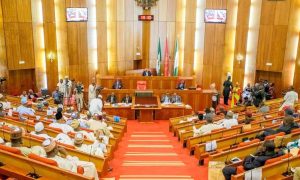This week, we focus on the Q1:2024 capital importation data published by the National Bureau of Statistics (NBS) highlighting the total foreign investment inflows into Nigeria during the period. According to the NBS, total capital inflows advanced 198.1% y/y to $3.4bn – the highest since Q1:2020. Foreign Portfolio Investment (FPI) – the largest component of the total capital importation with 61.5% share – advanced 219.7% y/y to $2.1bn, driven by improved inflows into money (up 1,175.2%) and bonds (up 39.8%) markets.
Meanwhile, equities declined 77.8% y/y to $49.4m (lowest Q1 inflows since 2022 at $31.8m). The sharp uptick in inflows to fixed income instruments (especially, money market) is not surprising given that the new CBN leadership have relaxed the yield repression strategy of the previous leadership to lure portfolio investors. During the quarter in review, the CBN hiked MPR by 600bps to 24.75%, while stop rates on the 90, 180, and 364-day NT-Bills tracked higher to 16.2%, 17.0% and 21.1%, respectively.
In our previous weekly commentary, we alluded that material depreciation of the Naira over the last year (down 69.6% vs USD) and improvement in yield environment have made Naira portfolios attractive to FPIs for short term play. Furthermore, the Foreign Direct Investment (FDI) sub-component rose 150.4% y/y to $119.2m during the period. Despite the y/y advancement, FDI declined 35.2% q/q, owing to further exits of multinationals such as Bayer Pharmaceuticals in January 2024.
Elsewhere, Foreign Currency Loans (FCY: up 165.3% y/y) contributed 94.0% of inflows in Other Investments segment of the capital importation data (up 171.1% y/y to $1.2bn). This reality does not bode well for the nation’s economy as it implies the lack of confidence by foreign investors to directly invest their assets in Nigeria.
Besides, given the current pricey state of capital in the global market especially for emerging economies with weak credit ratings like Nigeria (Fitch Ratings: B-), we imagine that the FCY loans (which were mainly to private businesses) were secured at elevated rates. Hence, while capital importation is well on course to hitting a five-year high (current run rate should deliver $13.5bn), it then becomes a bittersweet moment as Nigeria can’t afford to keep relying on expensive loans to boost foreign investment inflows. Besides, the challenging business environment in Nigeria has heightened the risk of loan default for businesses tapping into FCY markets to drive operations.
Shifting attention to the distribution of the inflows by sectors, we observed that Banking (61.2%) attracted the most, followed by Trading (14.7%) and Production (5.7%). This is the first time since Q1:2023 that Banking would lead other sectors. We opine that the inflows into the Banking sector partly reflects the impact of improved OMO issuances. The rise in Trading contribution to $494.5m (surpassing previous high of $311.2m in Q4:2021) could be attributed to attraction of Nigeria’s exports due to weaker Naira.
This submission is further validated by upbeat in Q1:2024 Foreign Trade Statistics in which trade surplus rose to ₦6.5tn surpassing 2023 year high of ₦5.1tn. In terms of distribution, capital inflows were limited to three states – Lagos ($2.8bn), Abuja ($593.6m) and Ekiti ($1,275). This underscores the amount of reforms subnational governments need to implement (in support of efforts by the FG) to make their state investment friendly if they ever intend to be fiscally independent.
Afrinvest



























